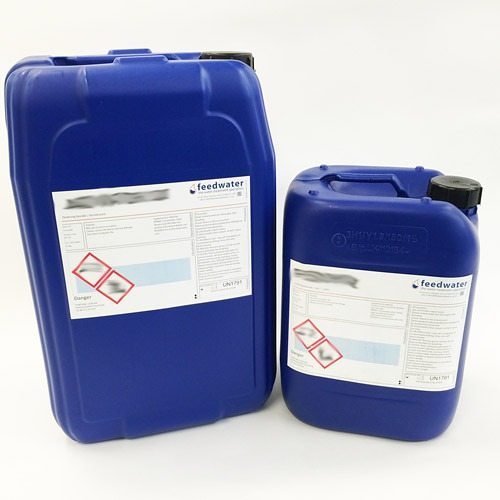The Importance of Making Use Of a Chemical Defoamer in Various Applications
The application of chemical defoamers is an essential factor to consider throughout multiple industries, consisting of food processing, wastewater therapy, and drugs. These agents play a pivotal duty in mitigating foam formation, which can hinder effectiveness and compromise item high quality.
Understanding Foam Development
Foam formation is a complex physical sensation that occurs when gas bubbles are entraped within a liquid matrix, causing the development of a stable framework. This process can be affected by numerous elements, including the thickness of the liquid, the surface area tension at the gas-liquid user interface, and the presence of surfactants. Surfactants reduced the surface tension, advertising bubble development and stablizing, which commonly leads to the formation of foam in several industrial procedures.
Foams are typically encountered in applications such as food production, wastewater therapy, and chemical manufacturing. In these contexts, foam can work as an insulator, disrupt blending procedures, or impede the performance of equipment. The security of foam is established by the balance in between the pressures acting to stabilize the bubbles and those that promote their collapse.
Comprehending the mechanics of foam development is essential for effectively managing its existence in different systems. By understanding the underlying concepts, markets can create approaches to minimize unwanted lathering, thus boosting functional effectiveness and item quality. This foundational expertise works as a precursor to checking out the energy of chemical defoamers, which especially attend to foam-related challenges in various applications.
Advantages of Chemical Defoamers
Chemical defoamers use substantial advantages across various industries by effectively controlling and reducing foam development. By decreasing foam, chemical defoamers aid keep ideal production prices and minimize downtime connected with foam administration.
Furthermore, chemical defoamers add to enhanced product quality. Frothing usually brings about incongruities in formulas, which can adversely influence the last product. By controlling foam degrees, defoamers make certain harmony, thus enhancing the total top quality of the outcome.
Cost-effectiveness is another remarkable advantage (Chemical Defoamer). By reducing the quantity of resources needed for manufacturing and lowering waste, chemical defoamers can result in significant financial savings. Moreover, they typically permit lowered energy consumption, as procedures can run much more efficiently and need much less intervention.
Applications in Food Processing
In the food handling industry, efficient management of foam is necessary to guarantee both item high quality and functional effectiveness. Foam can conflict with various procedures, from blending and blending to product packaging, resulting in lowered yields and possible contamination. Chemical defoamers play a crucial duty in reducing these problems by quickly breaking down foam, enabling smoother operations and improved item consistency.
In applications such as dairy products handling, defoamers prevent excess foam formation throughout the manufacturing of cheese, yogurt, and milk, which can interrupt equipment and impact the appearance of the last item. Similarly, in brewing and fermentation processes, foam control is vital to preserve the honesty of the beverage and guarantee ideal fermentation prices.
In addition, chemical defoamers are utilized in food sauces, solutions, and dressings to improve the stability and look of the end products. By minimizing foam during production, producers can accomplish much better blending and diffusion of components, causing premium top quality. Overall, the incorporation of chemical defoamers in food processing is essential for preserving effectiveness, high quality, and security in food manufacturing.
Function in Wastewater Treatment
Efficient foam management is just as crucial in wastewater treatment processes, where excessive More Bonuses foam can hinder procedures and make complex the therapy of effluents. In lots of wastewater therapy facilities, foam can form as a result of organic task, surfactants, or various other organic materials present in the influent. This foam can lead to a variety of functional difficulties, including decreased treatment efficiency, raised upkeep demands, and prospective regulatory conformity concerns.
Chemical defoamers play an important function in mitigating these obstacles. By reducing the surface area stress of the liquid, defoamers advertise the collapse of foam structures, thus facilitating smoother operation of equipment such as oygenation storage tanks and clarifiers. Their timely application helps keep ideal hydraulic conditions, boosting the general efficiency of solids splitting up processes.

Influence On Pharmaceutical Manufacturing
Foam control is vital in pharmaceutical manufacturing, where the presence of too much foam can interfere with making processes and concession item high quality (Chemical Defoamer). The formation of foam during various phases, such as blending, mixing, and fermentation, can result in inefficient mixing, poor warmth transfer, and also devices damage. These issues not just cause functional delays but can additionally create considerable monetary losses and affect conformity with rigorous regulative requirements
Chemical defoamers are specifically developed to minimize these obstacles. By effectively lowering foam formation, they enhance procedure performance and maintain the stability of the final item. Specifically, defoamers make sure constant dose kinds, enhance the stability of suspensions and emulsions, and improve cleansing processes by stopping foam accumulation in equipment.
In addition, using defoamers can enhance the yield of energetic pharmaceutical ingredients (APIs) by advertising much better removal and purification processes. As pharmaceutical business strive to boost product top quality while reducing manufacturing expenses, the duty of chemical defoamers ends up being significantly crucial - Chemical Defoamer. Their incorporation right into manufacturing procedures not just supports conformity with Good Production Practices (GMP) but likewise cultivates development and competition in a rapidly advancing industry

Conclusion

Chemical defoamers provide significant advantages throughout different sectors by efficiently reducing and managing foam formation. By decreasing foam, chemical defoamers aid preserve optimum production rates and lower downtime associated with foam administration. Chemical defoamers play a crucial function in mitigating these problems by promptly breaking down foam, permitting for smoother operations and improved item consistency.
Effective foam administration is just as essential in wastewater therapy official statement processes, where excessive foam can hinder operations and complicate the therapy of effluents.Foam control is crucial in pharmaceutical production, where the existence of too much foam can interfere with manufacturing processes and compromise item top quality.